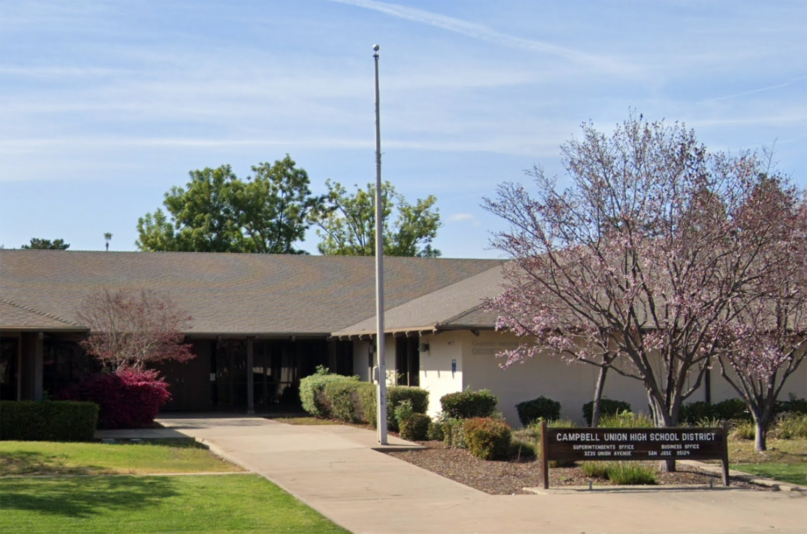(RNS) — Campbell Union High School District in San Jose, California, has come under fire for offering teachers an equity resource guide that includes “hexing” as a way of expressing their thoughts about racial justice.
The majority of the links on the district’s resource site lead to external news articles, historical content, book suggestions and non-profit support groups working in the fields of social justice and civil rights.
“We want to engage with our community and take the necessary steps to address systemic racism and injustice in our schools,” the district’s Equity Resources webpage reads. “We hope to have open conversations and communication with our parent, student, and staff community to reinforce the importance of this work and the ongoing efforts it will take.”
One of the links on the page points to a public Google drive, created in 2018, whose contents focus on confronting police brutality. The document causing the controversy is buried in the drive’s main collection of 45 documents.
Titled “Writing Prompts on Police Brutality and Racist Violence,” the offending document was written by The Dark Noise Collective, a “multiracial, multi-genre (art) collective,” according to its Facebook page. Members of the collective included poets Fatimah Asghar, Franny Choi, Nate Marshall, Aaron Samuels, Danez Smith and Jamila Woods.
RELATED: What is Wicca? An expert on modern witchcraft explains.
Among the prompts, which include writing a poem and making lists of “interactions with systems of violence/opposition” and “people who are no longer with us who you wish you could talk to,” is the recommendation that, “Hexing people is an important way to get out anger and frustration.”
It goes on to suggest making “a list of specific people who have been agents of police terror or global brutality. This list can be wide-ranging, from small micro-aggressions to larger perpetrators (i.e., people who say ‘all lives matter’ to the police officers who arrest nonviolent protestors to George Zimmerman).”
The prompt ends asking the reader to write their own hex poem to “curse that person.”
On Monday (Dec. 6), Spencer Lindquist, an intern at the conservative magazine The Federalist, published an article criticizing the district’s entire equity program, including the hex prompt, and warned of the educational system’s “descent into leftwing radicalism.”
Lindquist accused the district of teaching students “how to put a curse on those who say, ‘all lives matter.’”
Since the publication of Lindquist’s essay, the link to the Google drive, along with the collective’s document, has been taken off the school district’s main equity resources page. But the Google drive and all its contents, including the writing prompt document, are still available to the public by direct link.
The district did not return a request for comment, nor did any member of the collective, which appears to have disbanded, respond in time for publication.
The act of cursing is controversial in both mainstream communities and modern witchcraft circles. It is not a universal practice in the latter, and opinions vary based on tradition and personal belief. Some witches will not curse at all; others do so with reserve and solemnity.
“Hexes are reserved for severe incursions and levied with great aplomb, typically by a skilled practitioner,” explained author and rootworker Stephanie Rose Bird.
Bird is a life-long educator and visual artist as well as a practitioner of Hoodoo, a uniquely American folk magic tradition. In her 2018 book “365 Days of Hoodoo,” Bird includes an entire chapter on justice magic, explaining its history in justice work.
“As practiced by BIPOC and other folks immersed in a practice that addresses justice issues, Hoodoo has a lengthy history in America and beyond. While you don’t have to be an initiate to cast hexes or spells, Hoodoo practitioners realize neither is something to be taken lightly,” Bird said.
In hexing, the best results, she explained, “come from serious intent” and typically come from “in-depth practice.”
Although magic, even cursing, has a historical and a contemporary place in equity and justice work, Bird does not support the implied use of hexing in this particular situation.
RELATED: The battle over CRT is a manufactured crisis. Here’s why we still have to fight it.
“To ask students to create a hex, many of whom may be completely unpracticed and unaware of the venerable history, rationale, and modes of seeking Justice through African American Magick like Hoodoo is insulting,” she said.
Whether the collective intended the prompt to be a true curse or simply a thought experiment might even be irrelevant. Some witches maintain that the thought alone can be a spell.
Bird thought the assignment was “creative and well-intended.” It came from a good place, she said, however, cursing and hexing “practiced willy-nilly, without background and a robust framework, is potentially dangerous to all concerned.”





